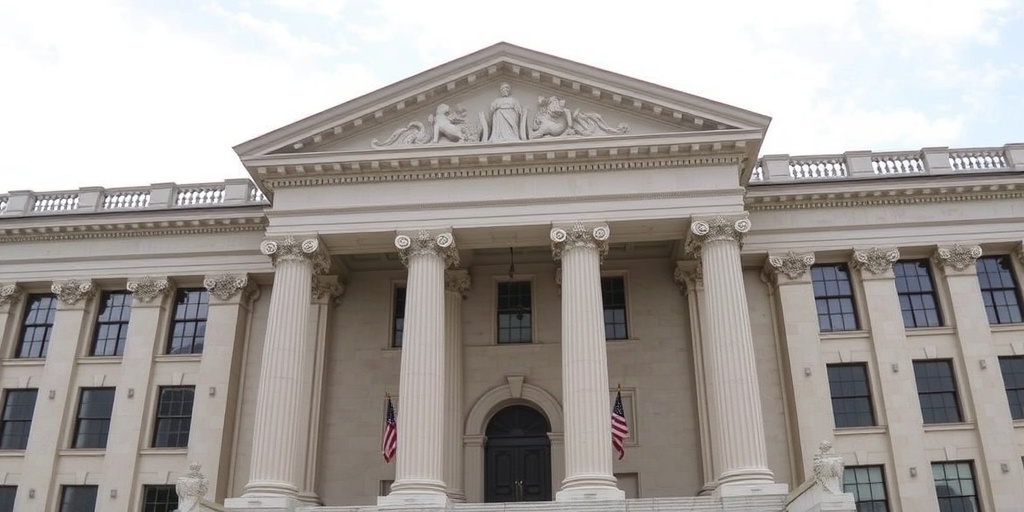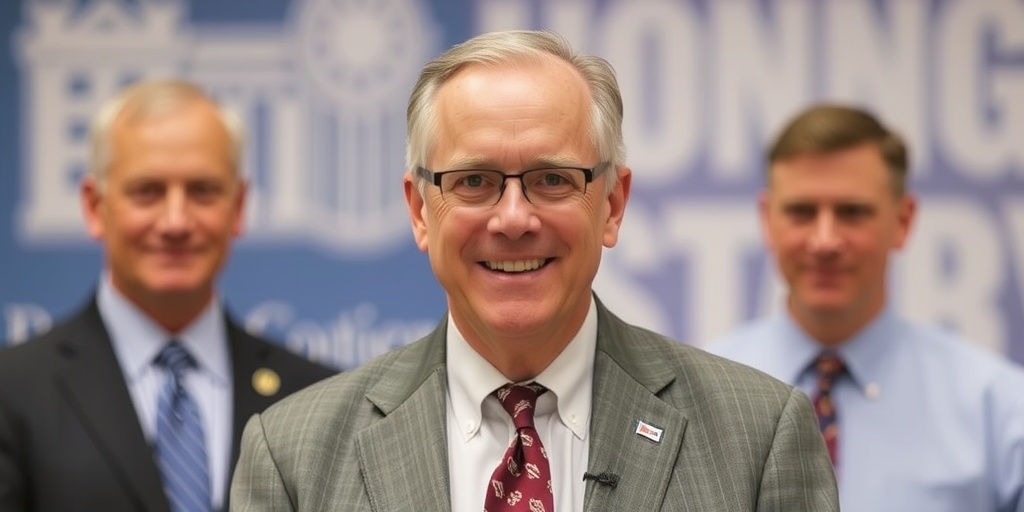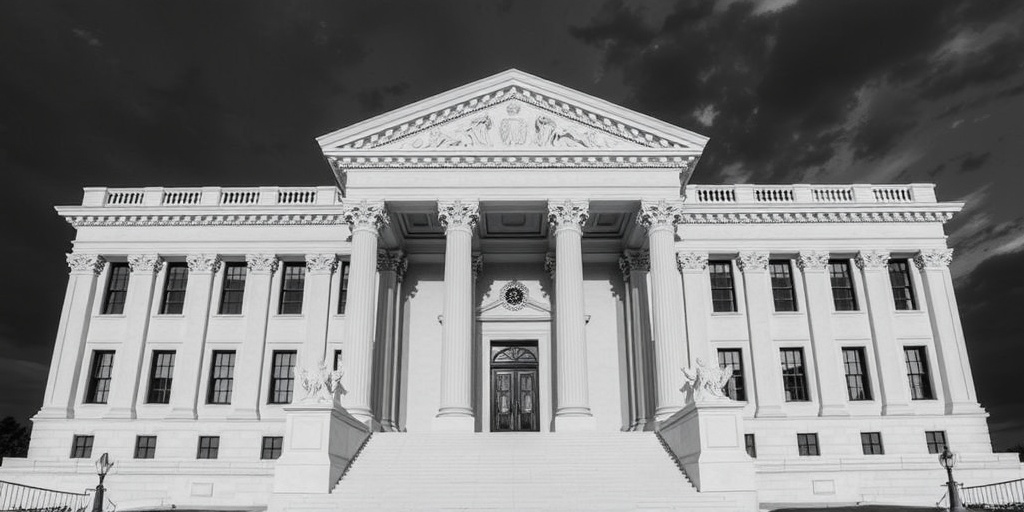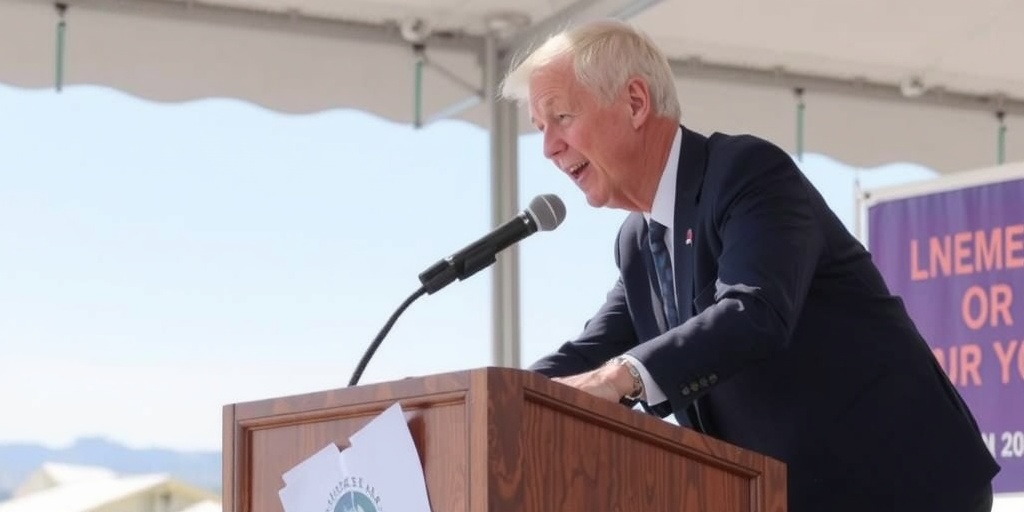Now Reading: Trump Vows to Roll Back State Climate Policies
-
01
Trump Vows to Roll Back State Climate Policies
Trump Vows to Roll Back State Climate Policies
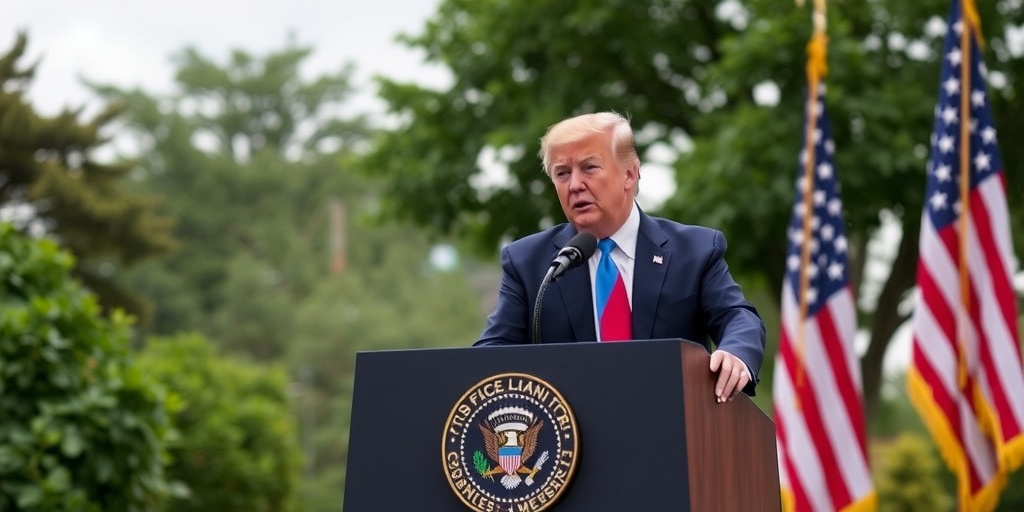
Trump Administration Targets State Climate Initiatives with New Executive Order
In a significant move that signals the Trump administration’s ongoing commitment to dismantling climate regulations at all levels of government, President Trump recently signed an executive order aimed at blocking state and local efforts to combat climate change. This directive not only targets existing laws but also signals a broader offensive against regulations that the president deems to threaten American energy dominance, as well as economic and national security.
The executive order outlines the Justice Department’s mission to eliminate what the administration characterizes as “burdensome and ideologically motivated” climate policies. This directive is particularly aimed at states like Michigan, Colorado, and Minnesota, which have enacted laws requiring that their electricity be sourced entirely from renewable and carbon-free sources. Furthermore, it directly challenges policies in California and Washington State that impose fees on companies for carbon dioxide emissions, as well as laws in New York and Vermont that seek to hold fossil fuel corporations financially accountable for the environmental damage caused by their products.
President Trump asserted in the order that these state-level laws are fundamentally incompatible with his administration’s objective of unleashing American energy resources. He firmly stated that such local regulations "should not stand," effectively opening the door for legal challenges against state-led climate initiatives.
Responses to the executive order have been swift. Several state attorneys general have denounced Trump’s actions as “lawless” and expressed their commitment to defending local laws from federal infringing efforts. Colorado’s Democratic attorney general, Philip J. Weiser, articulated the sentiment of many local leaders when he stated, “We don’t want Washington, D.C., telling us we can’t govern the way we see fit.” He further emphasized the constitutional rights of states to create responsible public policies in the face of federal overreach.
The ambiguity of Trump’s order raises concerns about how exactly the Justice Department will act on these directives. Previous federal departments have taken steps that align with Trump’s climate agenda, such as the Federal Highway Administration’s opposition to New York’s congestion pricing plan and the Transportation Department’s review of funding for bike lane projects. The administration is also reportedly working to undermine California’s plan to ban the sale of new gasoline-powered cars by 2035.
Experts in constitutional law have pointed out that the executive order lacks enforceable legal authority, essentially rendering it a statement rather than a legally binding directive. Michael Gerrard, director of the Sabin Center for Climate Change Law at Columbia University, remarked that “Presidents do not have the power to unilaterally annul state laws,” emphasizing that the potential legal repercussions of such an order could trigger a constitutional conflict.
Despite the lack of clear legal framework backing Trump’s order, it is predicted that the Justice Department will align itself with industry groups challenging state regulations. There is also credible apprehension among environmental advocates that the federal government might use funding as leverage to deter states from pursuing eco-friendly policies that conflict with the administration’s fossil fuel agenda.
The timing of this executive order coincides with a growing wave of state and local initiatives designed to mitigate climate change impacts. As of today, there are numerous state laws addressing greenhouse gas emissions, with states like Arizona, North Carolina, and Pennsylvania establishing renewable energy standards, while California, Colorado, and several others have set ambitious tailpipe emissions limits aimed at reducing fossil fuel dependence.
Notably, some notable climate "superfund" laws passed in New York and Vermont seek to compel fossil fuel companies to pay for damages related to extreme weather events exacerbated by climate change. These legislative efforts to hold corporations accountable stand in stark opposition to the Trump administration’s push for further fossil fuel exploitation.
Democratic governors, including Kathy Hochul from New York and Michelle Lujan Grisham of New Mexico, who are leading members of the U.S. Climate Alliance, have voiced strong opposition to the federal government’s actions. They firmly reiterated their stance through a joint statement, emphasizing that “the federal government cannot unilaterally strip states’ independent constitutional authority,” reaffirming a collective resolve to resist federal overreach in state governance.
As the national conversation around climate change continues to expand, this executive order signifies a renewed confrontation between state-level environmental policies and federal ambitions to promote fossil fuel industries. With the scientific community warning of the increasingly dire consequences of unchecked climate change, the upcoming legal battles will likely determine not only the future of local climate initiatives but also the broader trajectory of U.S. climate policy in the years to come.
Stay Informed With the Latest & Most Important News
Previous Post
Next Post
-
 01New technology breakthrough has everyone talking right now
01New technology breakthrough has everyone talking right now -
 02Unbelievable life hack everyone needs to try today
02Unbelievable life hack everyone needs to try today -
 03Fascinating discovery found buried deep beneath the ocean
03Fascinating discovery found buried deep beneath the ocean -
 04Man invents genius device that solves everyday problems
04Man invents genius device that solves everyday problems -
 05Shocking discovery that changes what we know forever
05Shocking discovery that changes what we know forever -
 06Internet goes wild over celebrity’s unexpected fashion choice
06Internet goes wild over celebrity’s unexpected fashion choice -
 07Rare animal sighting stuns scientists and wildlife lovers
07Rare animal sighting stuns scientists and wildlife lovers













